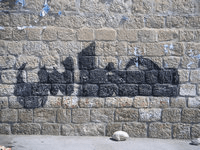RAMALLAH, West Bank -- On most days, Ramallah bustles with the sounds of commerce typical of Middle Eastern towns. The city, seat of power for the Palestinian Authority, is experiencing an economic boom that looks deceptively like normalcy. Pedestrians move along crowded sidewalks while traffic crawls along in the city center. In newer parts of town, bright new buildings give the city an air of prosperity reminiscent of the wealthiest areas of Jerusalem or Amman, the Jordanian capital.
Underneath the visible progress, however, signs are growing that the months ahead could bring heightened tension and even violence in the Palestinian Territories and in Israel proper. Ironically, one of the sources of the possible turmoil ahead is the expected signing on Oct. 25 of a reconciliation agreement between Fatah and Hamas, the Islamist party that expelled Fatah from Gaza two years ago in a brief but brutal paroxysm of violence.
If the two Palestinian factions do sign an agreement, they plan to follow with elections in a few months. That would inevitably give way to political maneuvering aimed at raising the popular appeal of the competing factions. And there is no better way to stir up support in cities like Ramallah, with its fervently patriotic young men and women, than by taunting the opposing side and challenging Israel. That is a perilous exercise that usually ends in bloodshed.

